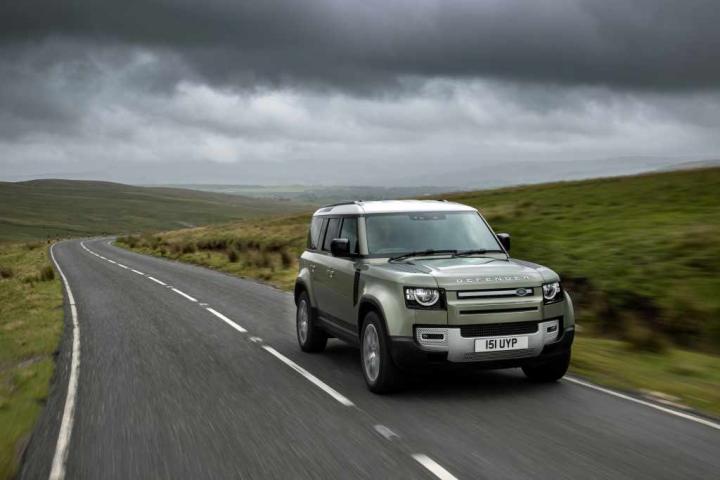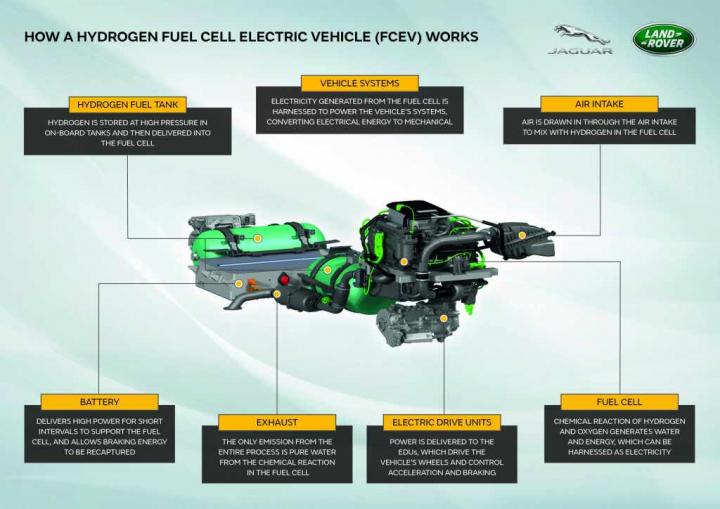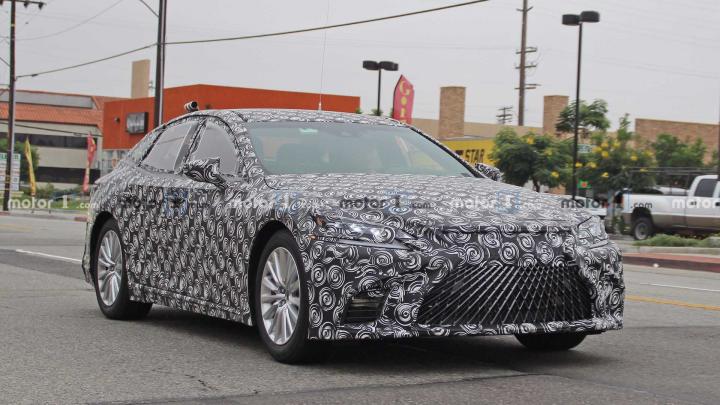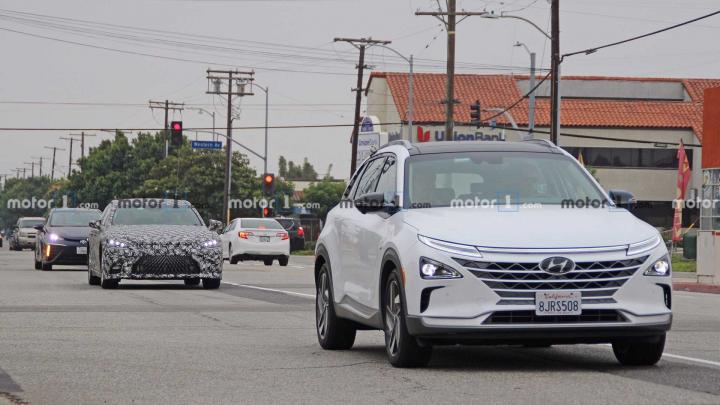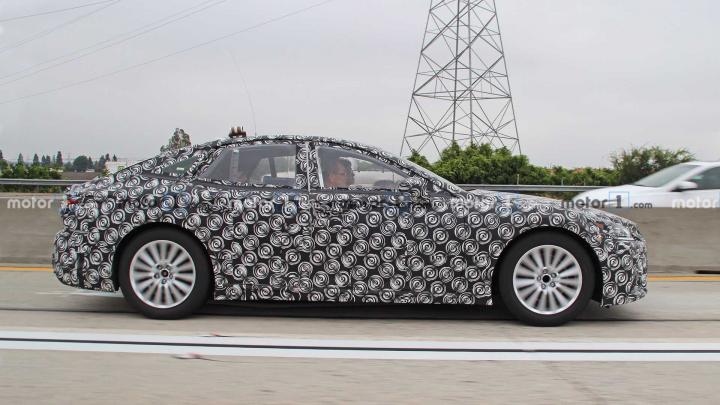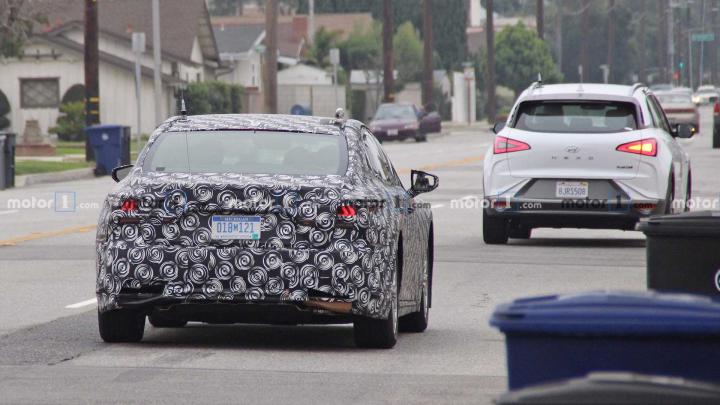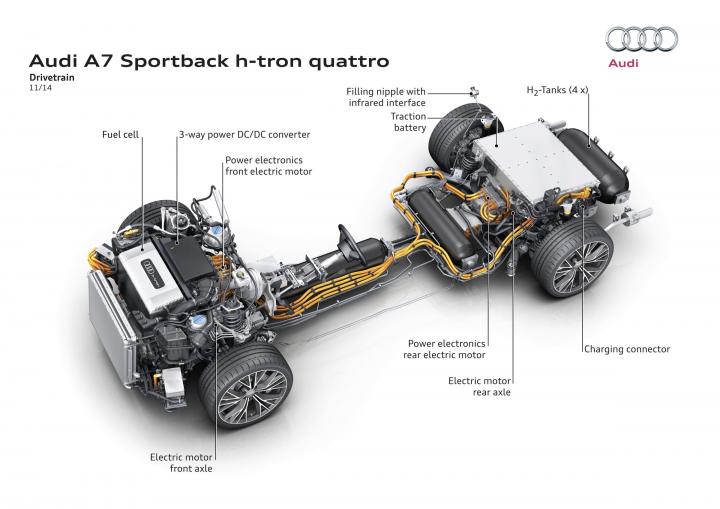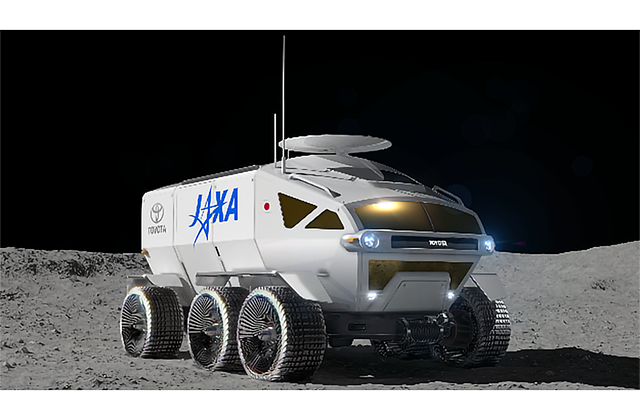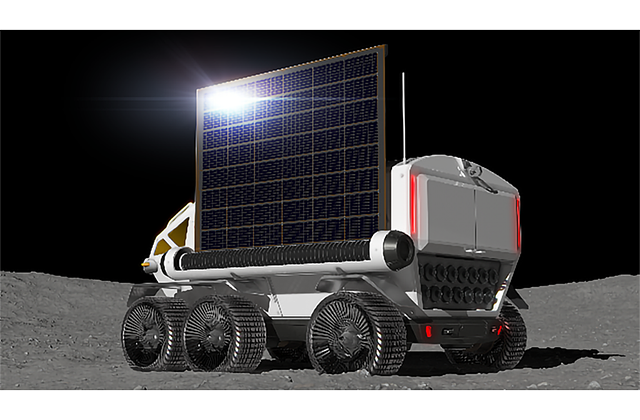News
BMW iX5 Hydrogen FCEV to be unveiled at IAA Mobility 2021
BMW will be demonstrating its fuel cell technology, while also allowing visitors to experience the car first-hand.
BMW has announced that the near-production version of its hydrogen fuel cell-powered SUV, the iX5 will be unveiled at the upcoming IAA Mobility 2021 in Munich, Germany.
The new BMW iX5 Hydrogen is based on the brand's i Hydrogen NEXT concept car, first showcased in 2019. At the IAA Mobility 2021, BMW will be demonstrating its fuel cell technology, while also allowing visitors to experience the car first-hand. The FCEV will then go on to enter a small (pilot) series production in end-2022, for further testing and demonstration purposes.
The BMW iX5 Hydrogen is similar to the current-gen X5 SUV. However, it does feature a new bumper design, large 22-inch aero wheels and blue accents all around the car. The iX5 is said to combine high-performance hydrogen fuel cells with the brand's latest fifth-generation eDrive technology.
The FCEV drivetrain converts hydrogen to electricity, producing 168 BHP. There is also a high-voltage battery which serves as a performance buffer, increasing the power output to 368 BHP. The iX5 also comes with a six-kilogram hydrogen tank, however, BMW is yet to announce the maximum range of the iX5 FCEV.
News
JLR to start testing hydrogen-powered Defender prototype soon
JLR is said to be developing a prototype hydrogen fuel cell electric vehicle, based on the Defender SUV.
Jaguar Land Rover is expected to start developing a prototype hydrogen fuel cell electric vehicle (FCEV) later this year. The prototype will be based on the new Land Rover Defender SUV.
The FCEV prototype concept is part of the brand's 'Reimagine Strategy', which aims to achieve zero vehicle emissions by 2036. As part of the same strategy, JLR is also working on net-zero carbon emissions across its supply chain, products and all other operations by 2039.
The hydrogen fuel cell electric vehicles (FCEV) are said to "complement the battery-electric vehicle (BEV)" offerings in JLR's future product line-up. The British marque stated that hydrogen-powered FCEVs provide high-density energy with rapid refuelling and optimal range even in low temperatures, giving them a slight advantage over pure-electric models.
Project Zeus, which is said to be a core part of JLR's reimagine strategy, will use the hydrogen-powered Defender to test the range, refuelling, off-roading capabilities and towing in real-world conditions. The testing of the Land Rover Defender FCEV is scheduled to begin in the UK by late-2021.
Jaguar Land Rover has also teamed up with various engineering firms to develop and create the FCEV prototype. These include Delta Motorsport, Marelli Automotive Systems, AVL and UKBIC.
News
Toyota to localise electric & hybrid tech in India
According to a media report, Toyota is looking to localise its electric and hybrid technologies in India.
Naveen Soni, Senior Vice President, Sales & Service - Toyota Kirloskar Motor has stated that if these technologies are localised, the company could offer electric, mild-hybrid, plug-in hybrid (PHEV) or fuel cell vehicles at competitive prices. We could see more hybrid vehicles on Indian roads in around 2 years' time. Toyota has already partnered with Suzuki and Denso to set up a battery plant in Gujarat.
He added that each manufacturer is looking at ways to meet upcoming CAFE (corporate average fuel efficiency) norms. Hybrids would be the key as they have a clear advantage over traditional combustion engines in terms of fuel efficiency and emissions.
Toyota's current model line-up in India includes two hybrids - Camry and Vellfire. Both vehicles are priced high.
News
Hyundai Nexo Hydrogen FCEV feasibility study begins in India
According to media reports, Hyundai has started a feasibility study of the hydrogen fuel-cell powered Nexo FCEV in India.
The Hyundai Nexo debuted at the 2018 Consumer Electronics Show (CES). It's an SUV that uses a 40 kW lithium-ion battery and a 95 kW hydrogen fuel-cell. It comes with an electric motor that has an output of 161 BHP and 395 Nm of torque. The car has a range of 666 km on the WLTP cycle.
Last month, the Supreme Court of India had suggested the government to explore the feasibility of hydrogen fuel vehicles to curb pollution. Just as the proliferation of the electric vehicle is limited by charging infrastructure, hydrogen fuel-cell cars will also require an extensive network of hydrogen filling stations.
News
Toyota Mirai Hydrogen Fuel Cell car spotted in India
The Toyota Mirai - a hydrogen fuel cell powered car has been spotted in India for the first time. The car has reportedly reached the Bangalore Toyota centre.
The Toyota Mirai is a 4-door sedan. It has slim wraparound headlights and triangular vents with chrome trim. An LED light is positioned vertically on either side of the bumper. The Mirai has blacked-out A, B and C-pillars. At the rear, the car has triangular tail lamps with a light bar that stretches across the tail gate.
On the inside, the Mirai has a 3-spoke multi-function steering wheel and a digital instrument cluster placed in the centre of the dashboard. It has a floating touchscreen infotainment system and a raked centre console with a piano black fascia and silver trim.
The Mirai is powered by a fuel cell system that has 370 cells. It has a peak output of 151 BHP. The fuel cell system powers an electric motor that has an output of 149 BHP and 335 Nm of torque.
Source: Manoramaonline
News
Lexus LS hydrogen fuel cell spotted testing
A Lexus LS hydrogen fuel cell prototype has been spotted testing in the US. The images show the car with a Toyota Mirai and a Hyundai Nexo, which are both hydrogen fuel cell vehicles.
The camouflaged car looks like it is based on the current LS, but the production version could be based on the LS facelift. The car could get a new front grille among other exterior changes. Changes and features specific to the fuel-cell variant are also expected.
The car is said to be Toyota's second attempt at a fuel cell vehicle. It is could be powered by an updated version of the powertrain used in the Toyota Mirai, which was introduced in 2014. The electric motor in the Mirai produces 150 BHP and 335 Nm and the car's total hydrogen tank capacity is 5 kg giving it an EPA-approved range of 502 km. This variant of the LS could get all-wheel drive as standard.
There's no word on the launch date of the fuel-cell LS. It is likely to be introduced in 2020 or 2021.
Source: motor1
News
Audi re-considering fuel cell development
According to a media report, Audi is expected to intensify development of its hydrogen fuel cell technology. The move comes amidst concerns over sourcing of rare natural resources for battery productions as well as increasing customer demands from electric vehicles (EVs).
It is also reported that the German carmaker will unveil a 6th-generation hydrogen fuel cell prototype later this year. Subsequently, the company could also offer the Audi FCEV (fuel cell electric vehicle) car to customers by 2021 as part of a lease program. The car could be made at the Neckarsulm plant in Germany, which currently manufactures A6, A7 and A8 models.
In 2016, Audi revealed the h-tron fuel cell concept with a 600 km range and a refuelling time of 4 minutes. The company also plans to launch 12 battery electric vehicles (BEV) by 2025.
Source: Autocar
News
JAXA and Toyota to jointly develop manned Lunar Rover
The Japan Aerospace Exploration Agency (JAXA) and Toyota Motor Corporation (Toyota) have announced that they will be studying the possibility of a collaboration on international space exploration. As part of this, both the organisations will first work towards the development of a lunar rover.
Toyota and JAXA are already conducting a joint study on a manned rover, which employs fuel cell technology. The development of this vehicle will now be hastened. The rover is aimed at aiding human exploration of the moon. The rover will be pressurized and have a claimed range of over 10,000 km. The first manned missions to moon are expected to take place in the 2030s, while JAXA expects to launch the rover into space by 2029.
The concept of the rover that has been revealed is a 6-wheeled vehicle that measures 6 m in length, 5.2 m in width and 3.8 m in height. It has a total living space of 13 cubic meters and can accommodate 2 people (4 in an emergency). Astronauts would be able to live inside the rover without wearing space suits. The rover will also be capable of astronaut, remote or autonomous operation modes.
News
Germany rolls out world's first hydrogen train
According to a media report, Germany has become the first country in the world to put hydrogen fuel cell trains into service. Two Coradia iLint trains, made by French train maker Alstom, will ply as passenger trains on a 100 km route in northern Germany.
The trains have a range of 1,000 km before needing a refuel - comparable to equivalent diesel trains running today. The fuel cell technology is claimed to be a cleaner and quieter alternative to diesel trains. In a fuel cell, hydrogen and oxygen combine to generate electricity, while the by-products are steam and water.
Alstom has already received orders for 14 more zero emission trains to be delivered by 2021, while other states in Germany have also expressed interest in them. Countries like Britain, Netherlands, Denmark, Norway, Italy and Canada are also exploring hydrogen powered trains, while France plans to deploy them by 2022.
Source:The Guardian
News
Is Hyundai considering the Nexo for India?
Thanks to BHPian CrAzY dRiVeR for sharing this with fellow enthusiasts.
In a series of YouTube videos, Hyundai India has started promoting the Nexo fuel cell vehicle. According to the video description, Hyundai is considering fuel cell vehicles as an alternate source of propulsion instead of conventional fuels. The videos also include a look into the future of mobility through Hyundai's eyes.
Earlier this year, Hyundai showcased the Nexo at the India-Korea Business Summit held in Delhi. The SUV comes with a 95 kW hydrogen fuel cell and a 40 kW battery pack. The power output is rated at 161 BHP and 395 Nm of torque. Hyundai claims a 0-100 km/h time of 9.2 seconds and a top speed of 179 km/h. The range is estimated to be 800 km (New European Driving Cycle). The Nexo comes equipped with a range of semi-autonomous driver assistance features.
If launched in India, this could be one of the first fuel cell cars in the country and could serve as a halo product for the Korean manufacturer. However, the lack of infrastructure for fuel cell vehicles is a deterrent.
Meanwhile, Hyundai is looking to launch the Kona SUV in 2019. It will be the Korean carmaker’s first electric vehicle in India. Reports also suggest that they are considering the Ioniq as well. The car was showcased alongside the Nexo at the India-Korea Business Summit.
Pages



.jpg)
.jpg)
.jpg)
.jpg)
.jpg)
.jpg)
.jpg)
.jpg)
